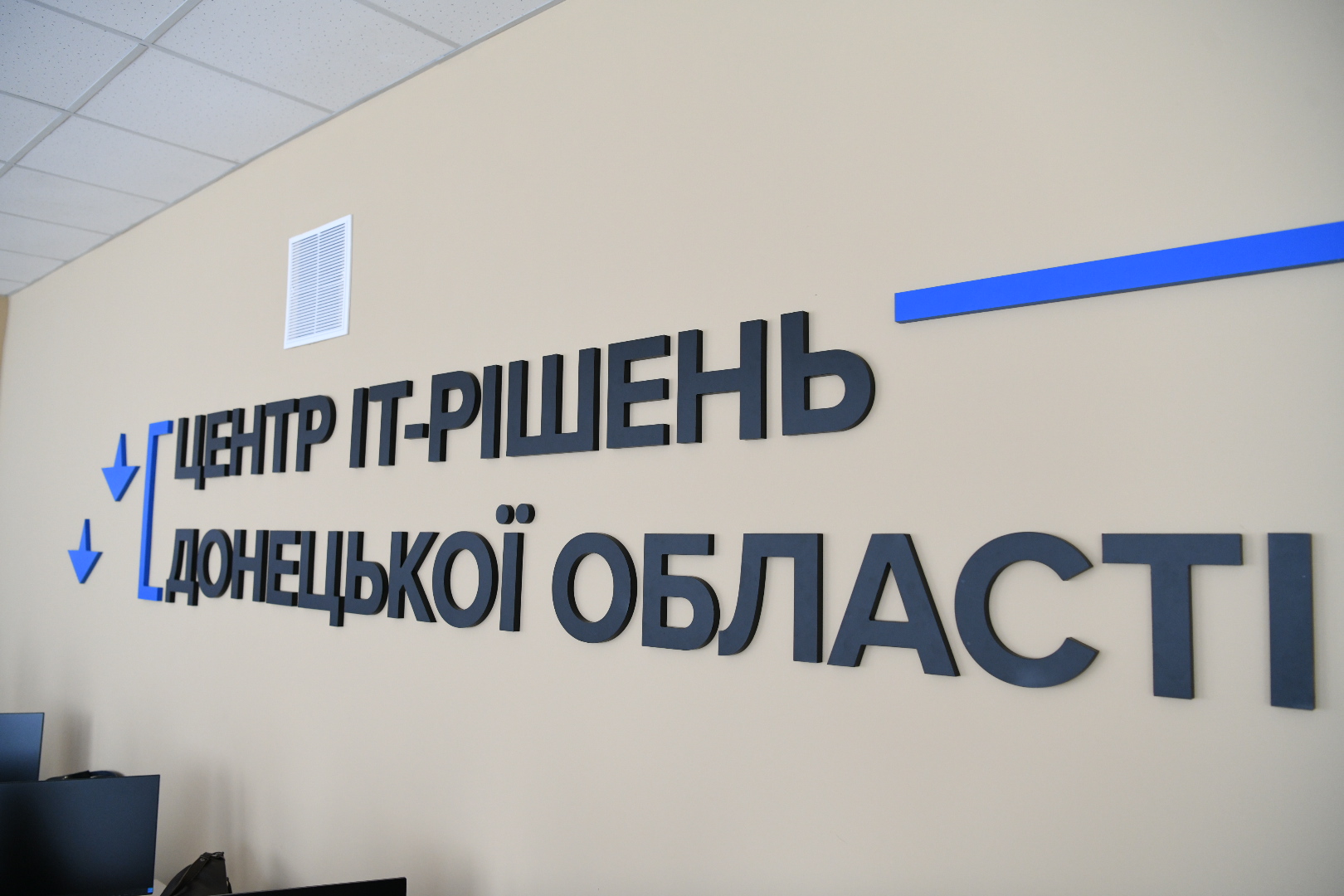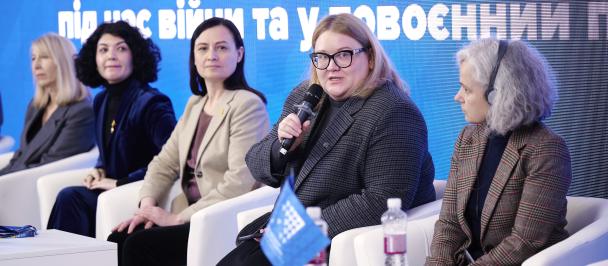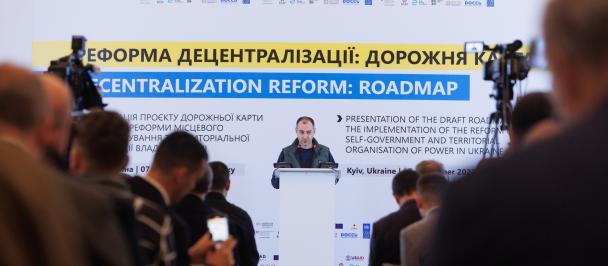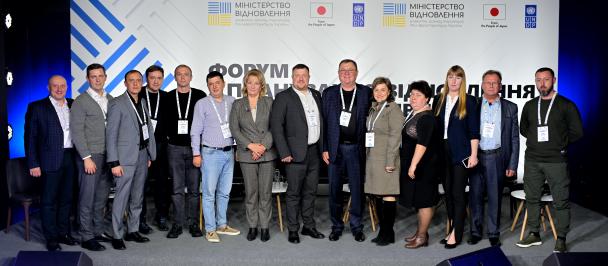IT Solution Centres aim to strengthen the local government's potential by using modern approaches and tools of e-government
Photo credit: Artem Getman / UNDP Ukraine
Kramatorsk, Donetsk Oblast, Sievierodonetsk, Luhansk Oblast, April 5, 2021 – Today, the United Nations Development Programme (UNDP) in Ukraine, together with national partners, has solemnly opened two pilot IT Solutions Centres in Kramatorsk, Donetsk Oblast, and Sievierodonetsk, Luhansk Oblast.
The centres were opened based on Donbas State Engineering Academy and East Ukrainian National University n. a. V. Dahl, overhauled and equipped with furniture and equipment at a total cost of 72,000 US dollars (about UAH 2,000,000) under the UN Recovery and Peacebuilding Programme, with the financial support of European Union.
Each Centre has about 30 workplaces equipped with computers, laptops, graphics tablets, interactive whiteboards, projectors, audio centres, servers, routers etc.
Martin Schroeder, Head of Local and Human Development Section at the EU Delegation to Ukraine, spoke of the importance of IT solutions designed to improve service delivery for local residents.
"I am pleased to see a tangible result of the digital component in our joint social and economic development programme for Donetsk and Luhansk oblasts. Two IT Solutions Centres, which we have launched today, will set up a learning platform for IT developers and users to benefit local communities and further support the digitalisation of services”, said Mr Schroeder.
Mr Schroeder also referred to a complementary EU initiative in support of displaced universities operating in eastern Ukraine. "The EU is also supporting ten projects with displaced universities, reinforcing their capacity and helping them maintain competitive positions and quality of academic services. As the IT Solutions Centres are hosted by two local universities, I believe the centres can play a role in transforming these universities into IT centres of excellence", added Mr Schroeder.
From now on, each IT Solution Centre will give communities the opportunity:
- to develop technical tasks for the introduction of new software for digital interaction between the structural units of councils and eldership districts, government and citizens;
- receive services of interactive distance learning, advanced training, retraining, etc .;
- coordinate IT processes at the oblast level;
- participate in digital learning activities.
Manal Fouani, UNDP Deputy Resident Representative in Ukraine, said one of the organisation's priorities is to promote the digitisation of communities – especially those in conflict-affected areas and communities located along the "contact line" in eastern Ukraine.
"Accelerating the implementation of digital solutions will dramatically improve local government responsiveness and efficiency in eastern Ukraine, helping overcome some of the administrative hurdles created by the conflict," Fouani said. "At the same time, we also need to work to close the digital divide, ensuring that no one is left behind as we move forward with digital solutions."
Fouani said the IT Solutions Centres are a new IT space that will play an essential role in the digital transformation of communities, "using the best tools and the most innovative approaches available to help close the gap between the digital haves and have-nots."
The Centres will also serve as a platform for expanding cooperation between higher education institutions for IT professionals, provide students with internships, and implement an effective exchanging mechanism between state and local governments, the public, and the media to respond quickly to community needs.
After the launch of IT Solution Centres, educational institutions will coordinate their logistics and provide further financing.
Olha Porkuian, Rector of East Ukrainian National University n. a. V. Dahl, says that they support Luhansk Oblast's communities for global digitalisation and development of e-services, and are ready to use all of their scientific and technical potential for effective participation in these processes. "We believe that a systematic approach, joint efforts and cooperation between central and local governments, and between research and educational institutions, on the IT Solutions Centre will bring the informatisation of the region to a qualitatively new level," Porkuian added.
Victor Kovaliov, Doctor of Technical Sciences, Rector of the Donbas State Machine-Building Academy, notes that within the Centre's activities, cooperation with communities for the introduction of modern digital technologies in daily activities is to be a priority. "We see students of the Centre representing communities of different levels – from the regional administration to territorial communities, from civil servants to ordinary citizens. It's a new and interesting challenge for us, which opens up new areas of activity and cooperation."
The United Nations Recovery and Peacebuilding Programme (UN RPP) is being implemented by four United Nations agencies: the United Nations Development Programme (UNDP), the UN Entity for Gender Equality and the Empowerment of Women (UN Women), the United Nations Population Fund (UNFPA) and the Food and Agriculture Organization of the United Nations (FAO).
Twelve international partners support the Programme: the European Union (EU), the European Investment Bank (EIB), the U.S. Embassy in Ukraine, and the governments of Canada, Denmark, Germany, Japan, the Netherlands, Norway, Poland, Sweden & Switzerland.
Media enquiries
Maksym Kytsiuk, Communications Specialist, the UN Recovery and Peacebuilding Programme, maksym.kytsiuk@undp.org, +380 63 576 1839


 Locations
Locations




